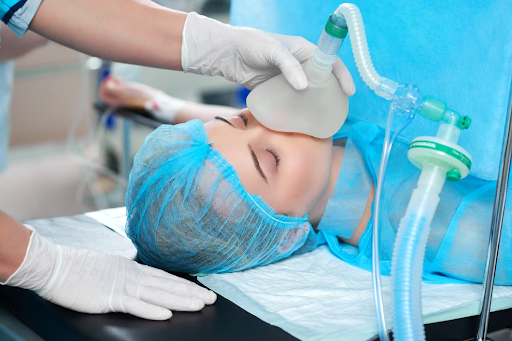The Benefits of Sleep Apnea Surgery in Treating Severe Cases

Sleep apnea is a serious condition that disrupts breathing during sleep. Severe cases can lead to life-threatening complications if left untreated. While treatments like CPAP machines and lifestyle changes help many, they do not work for everyone. This is where sleep apnea surgery becomes an effective solution.
Surgical procedures can open airways, reduce obstruction, and improve breathing. For those struggling with extreme symptoms, this intervention can restore normal sleep patterns and enhance overall health.
Understanding Severe Sleep Apnea
Severe sleep apnea causes repeated pauses in breathing throughout the night. This disrupts oxygen levels and puts immense strain on the body. People with this condition often experience chronic fatigue, headaches, and poor concentration. Over time, it increases the risk of heart disease, stroke, and high blood pressure.
Conventional treatments may not always provide relief for those with advanced cases. If non-surgical methods fail, sleep apnea surgery offers a more permanent approach to improving airflow.
Sleep Apnea Surgery Provides Relief
Surgical procedures target the root cause of airway obstruction. They modify the structure of the throat, soft palate, or jaw to keep the airway open. By removing excess tissue or repositioning certain areas, breathing becomes more natural and uninterrupted.
Modern sleep apnea surgery is particularly beneficial for those who cannot tolerate CPAP therapy. It eliminates the need for external devices and allows patients to sleep comfortably without constant interruptions.
Different Types of Surgical Procedures
Various surgical options exist to treat sleep apnea, depending on the severity and cause of obstruction. Some procedures remove tissue from the throat, while others adjust bone structures.
One common option is uvulopalatopharyngoplasty (UPPP), which removes excess tissue from the throat. Another is maxillomandibular advancement (MMA), a surgery that repositions the jaw to widen the airway. For those with nasal blockages, turbinate reduction can improve airflow through the nasal passages.
Recovery and Post-Surgical Care
Healing from sleep apnea surgery varies depending on the procedure performed. Most patients experience swelling, discomfort, and temporary difficulty swallowing. Full recovery can take several weeks, during which lifestyle adjustments are necessary.
Following post-surgical guidelines is essential for optimal results. Patients must avoid strenuous activities and follow a soft diet initially. Regular follow-ups with a doctor ensure proper healing and long-term improvement in breathing function.
Long-Term Benefits of Surgical Treatment
Surgery offers a lasting solution for those struggling with severe sleep apnea. Unlike CPAP machines that require daily use, surgical procedures provide permanent structural changes. This leads to improved sleep quality, higher energy levels, and reduced health risks.
Many patients report better concentration, fewer headaches, and relief from daytime fatigue. Most importantly, surgery lowers the risk of cardiovascular diseases associated with chronic oxygen deprivation. With proper care, the results of sleep apnea surgery can significantly enhance overall well-being.
Conclusion
Severe sleep apnea can disrupt life in many ways, but surgery offers a long-term solution for those who need it. By addressing the root cause of airway obstruction, surgical treatment improves breathing, sleep quality, and overall health. While recovery takes time, the benefits outweigh the temporary discomfort. For patients who have exhausted other treatment options, sleep apnea surgery can be a life-changing step toward better rest and a healthier future.


